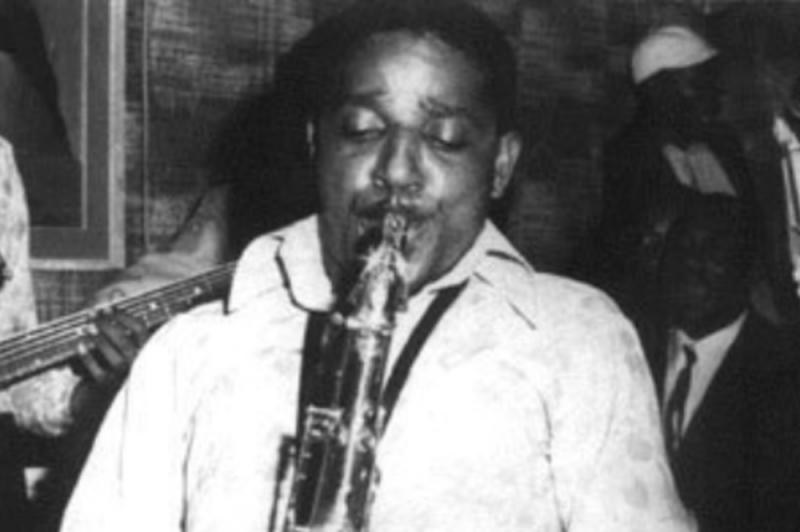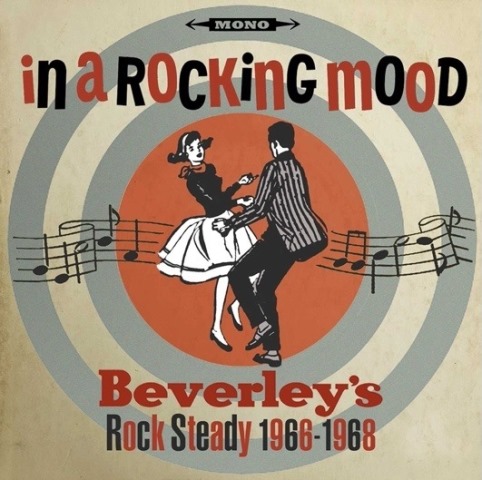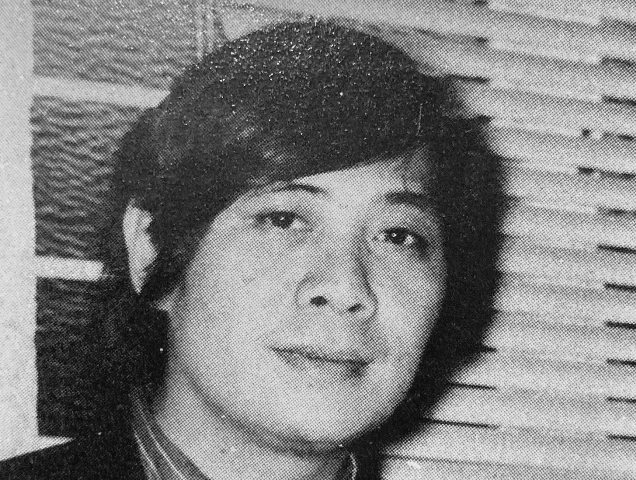Music Reissues Weekly: In A Rocking Mood - Beverley’s Rock Steady 1966-1968 | reviews, news & interviews
Music Reissues Weekly: In A Rocking Mood - Beverley’s Rock Steady 1966-1968
Music Reissues Weekly: In A Rocking Mood - Beverley’s Rock Steady 1966-1968
Leslie Kong’s legendary Jamaican label moves with the times

Beverley’s was an ice-cream shop and restaurant on Orange Street in Kingston, Jamaica. Records were on sale too. In 1961, an aspiring singer-songwriter named James Chambers turned up there with a song he’d written called “Dearest Beverley.” If it was recorded, it’d give its creator a leg-up on the music scene and also might be good promotion for the business.
One of the ice-cream concern’s owners agreed. James Chambers became Jimmy Cliff and with Leslie Kong, who turned his attention the business of music rather than ice cream, founded the Beverley’s label. Over 1961 to 1971 – the label ceased operation when Kong died in 1971 – Laurel Aitken, Desmond Dekker, Bob Marley and The Maytals had releases on Beverley’s. The label’s records were licensed to Island in the UK and, later, the Pyramid label became the British outlet for Kong’s releases.
 Leslie Kong was a self-made music entrepreneur with a knack for spotting talent early and making deals. Bobby Martell, the future Bob Marley, recorded for Kong. Kong’s competitors Clement Dodd and Duke Reid were big news in Jamaica but Beverley’s cuts like Dekker's “007 (Shanty Town)” and “Israelites” went big in the UK. The Maytals “Monkey Man” and “Pressure Drop” were Kong’s too. He also produced The Melodians’ “By the Rivers of Babylon.”
Leslie Kong was a self-made music entrepreneur with a knack for spotting talent early and making deals. Bobby Martell, the future Bob Marley, recorded for Kong. Kong’s competitors Clement Dodd and Duke Reid were big news in Jamaica but Beverley’s cuts like Dekker's “007 (Shanty Town)” and “Israelites” went big in the UK. The Maytals “Monkey Man” and “Pressure Drop” were Kong’s too. He also produced The Melodians’ “By the Rivers of Babylon.”
The double CD In A Rocking Mood – Beverley’s Rock Steady 1966–1968 doesn’t focus on the famous stuff but instead collects cuts from singles recorded in the fundamental period when ska gave way to rock steady and began transforming itself into reggae. Disc Two collects instrumental B-sides on Beverley’s credited to Roland Alphonso, while Disc One features Austin Faithful, The Rio Grandes, Norman Grant, The Spanishtonians and more. Notably, master tapes have been found as sources and there are previously unheard alternate versions.
Apart from the Austin Faithful track which gives the set its title, none of the 19 A-sides heard on Disc One are overly familiar and, taken with the archive discoveries, In A Rocking Mood offers a fresh take on the Leslie Kong story.
Little could be more surprising than Winston & George’s “Denham Town.” It begins with three gun-shot raps on a drum and then has a lyric about a rude boy taking inspiration from the Vietnam war. “I’m going to turn Vietnam said the rude boy, then I’ll fight them with a hatchet and cut them with a ratchet…you could see them running here, you could see them running there, you could see them running almost everywhere.” The restrained sax solo – presumably from the post-Skatalites Roland Alphonso – is at odds with the brutal tale the song tells.
 Less unexpected are gently devotional cuts like The Rio Grandes’ “Moses” and Austin Faithful’s “Eternal Love.” Faithful’s “Miss Anti-Social” fascinatingly presages reggae while still sporting doo wop-derived backing vocals. In essence, Disc One captures Jamaican music in transition. (pictured left, Leslie Kong)
Less unexpected are gently devotional cuts like The Rio Grandes’ “Moses” and Austin Faithful’s “Eternal Love.” Faithful’s “Miss Anti-Social” fascinatingly presages reggae while still sporting doo wop-derived backing vocals. In essence, Disc One captures Jamaican music in transition. (pictured left, Leslie Kong)
On the second disc, Roland Alphonso is heard leading – credited as Roland Alphonso & The Beverley’s All-Stars –19 instrumental B-sides and three alternate takes. As there was no need to address current lyrical trends, it feels as if Alphonso was largely doing as he pleased. Unlike A-sides, there was little need to address commercial concerns; a major reason for Kong’s success was his ear for what could be popular. For Beverley’s, top sides ruled. While “Guantanamera Ska” is exactly what its title suggests, “Stream of Life” is an amazing, jazzy mood piece with shades of John Coltrane in its phrasing. Set this alongside the exotica-ska-jazz of “On the Move” and a curious proto-reggae version of “Whiter Shade of Pale” and it adds up to Alphonso taking whatever path he fancied. This deserves to be a stand-alone Roland Alphonso release instead of Disc Two of a compilation.
The only drawback with In A Rocking Mood is the booklet’s essay, an overview of the label rather an exploration of what’s on these discs. George Dekker, Austin Faithful, Freddie McKay, The Rio Grandes, The Spanishtonians and Winston & George are mentioned, and that is it. Who were they? How do they fit in the with the overall picture? Alphonso’s history is covered but there is nothing on how he tied in with Kong and Beverley’s. Similarly, scrutiny of the music heard is lacking. Some background on the master tapes, where they were and how they were found would have been handy. Nonetheless, In A Rocking Mood – Beverley’s Rock Steady 1966–1968 is a vital snapshot of one of Jamaica’s most important labels as it got to grips with how the island’s music was developing.
- Next week: Barney Wilen’s 1966 album Zodiac - French jazz curio created for a prospective zodiac-inspired film
- More reissue reviews on theartsdesk
- Kieron Tyler’s website
Explore topics
Share this article
The future of Arts Journalism
You can stop theartsdesk.com closing!
We urgently need financing to survive. Our fundraising drive has thus far raised £49,000 but we need to reach £100,000 or we will be forced to close. Please contribute here: https://gofund.me/c3f6033d
And if you can forward this information to anyone who might assist, we’d be grateful.

Subscribe to theartsdesk.com
Thank you for continuing to read our work on theartsdesk.com. For unlimited access to every article in its entirety, including our archive of more than 15,000 pieces, we're asking for £5 per month or £40 per year. We feel it's a very good deal, and hope you do too.
To take a subscription now simply click here.
And if you're looking for that extra gift for a friend or family member, why not treat them to a theartsdesk.com gift subscription?
more New music
 Cat Burns finds 'How to Be Human' but maybe not her own sound
A charming and distinctive voice stifled by generic production
Cat Burns finds 'How to Be Human' but maybe not her own sound
A charming and distinctive voice stifled by generic production
 Todd Rundgren, London Palladium review - bold, soul-inclined makeover charms and enthrals
The wizard confirms why he is a true star
Todd Rundgren, London Palladium review - bold, soul-inclined makeover charms and enthrals
The wizard confirms why he is a true star
 It’s back to the beginning for the latest Dylan Bootleg
Eight CDs encompass Dylan’s earliest recordings up to his first major-league concert
It’s back to the beginning for the latest Dylan Bootleg
Eight CDs encompass Dylan’s earliest recordings up to his first major-league concert
 Ireland's Hilary Woods casts a hypnotic spell with 'Night CRIÚ'
The former bassist of the grunge-leaning trio JJ72 embraces the spectral
Ireland's Hilary Woods casts a hypnotic spell with 'Night CRIÚ'
The former bassist of the grunge-leaning trio JJ72 embraces the spectral
 Lily Allen's 'West End Girl' offers a bloody, broken view into the wreckage of her marriage
Singer's return after seven years away from music is autofiction in the brutally raw
Lily Allen's 'West End Girl' offers a bloody, broken view into the wreckage of her marriage
Singer's return after seven years away from music is autofiction in the brutally raw
 Music Reissues Weekly: Joe Meek - A Curious Mind
How the maverick Sixties producer’s preoccupations influenced his creations
Music Reissues Weekly: Joe Meek - A Curious Mind
How the maverick Sixties producer’s preoccupations influenced his creations
 Pop Will Eat Itself, O2 Institute, Birmingham review - Poppies are back on patrol
PWEI hit home turf and blow the place up
Pop Will Eat Itself, O2 Institute, Birmingham review - Poppies are back on patrol
PWEI hit home turf and blow the place up
 'Fevereaten' sees gothic punk-metallers Witch Fever revel in atmospheric paganist raging
Second album from heavy-riffing quartet expands sonically on their debut
'Fevereaten' sees gothic punk-metallers Witch Fever revel in atmospheric paganist raging
Second album from heavy-riffing quartet expands sonically on their debut
 theartsdesk Q&A: Soft Cell
Upon the untimely passing of Dave Ball we revisit our September 2018 Soft Cell interview
theartsdesk Q&A: Soft Cell
Upon the untimely passing of Dave Ball we revisit our September 2018 Soft Cell interview
 Demi Lovato's ninth album, 'It's Not That Deep', goes for a frolic on the dancefloor
US pop icon's latest is full of unpretentious pop-club bangers
Demi Lovato's ninth album, 'It's Not That Deep', goes for a frolic on the dancefloor
US pop icon's latest is full of unpretentious pop-club bangers
 Yazmin Lacey confirms her place in a vital soul movement with 'Teal Dreams'
Intimacy and rich poetry on UK soul star's second LP
Yazmin Lacey confirms her place in a vital soul movement with 'Teal Dreams'
Intimacy and rich poetry on UK soul star's second LP
 Solar Eyes, Hare & Hounds, Birmingham review - local lads lay down some new tunes for a home crowd
Psychedelic indie dance music marinated in swirling dry ice
Solar Eyes, Hare & Hounds, Birmingham review - local lads lay down some new tunes for a home crowd
Psychedelic indie dance music marinated in swirling dry ice

Add comment